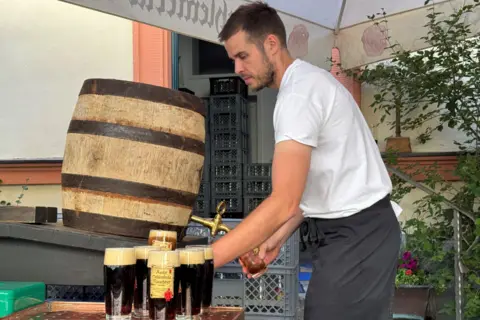Germans are drinking less beer; however, non-alcoholic varieties are gaining unprecedented popularity. According to the Destatis federal statistics office, sales of non-alcoholic beer have more than doubled in recent years—up by 109% since 2013—despite beer sales hitting their lowest point in over three decades.
For the first time, beer sales in Germany have fallen below 4 billion liters in just six months, showing a sharp decline of 6.3% or about 262 million liters, compared to the previous year.
The Erdinger brewery, based near Munich, reports that about a quarter of its production now consists of non-alcoholic beers due to changing drinking habits. CEO Stefan Kreisz notes that breweries must find appealing ways to market non-alcoholic options to young consumers, emphasizing the need to understand modern socializing and party dynamics.
Barman Louis von Tucher from Café Kosmos in Munich observes a noticeable shift in customer consciousness regarding health and consumption. Everybody is a little bit more conscious about their consumption now, he remarks.
Meanwhile, traditional beer culture remains robust in regions like Bamberg, where popular festivals such as Sandkerwa continue to attract crowds who cherish their beer traditions. Customers at these events still celebrate the rich heritage of brewing, suggesting that while consumption patterns evolve, the cultural significance of beer in Germany persists.
As the landscape of beer consumption changes in Germany, it represents a complex intersection of health trends and deep-rooted traditions that may continue to reshape the industry in the years to come.


















